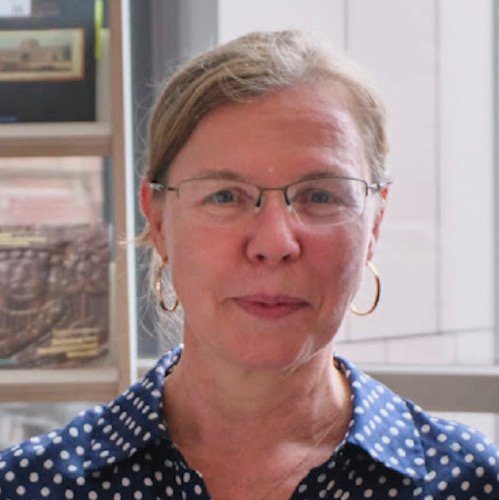
Margo Bargheer
Göttingen University Library
Margo Bargheer ![]() is a trained graphic designer and holds a master degree in social anthropology and media studies. She is head of the team for electronic publishing at Göttingen University Library, including Göttingen University Press, the university‘s repositories, the Diamond open access journal platform and other services around scholarly communication. She and her team coordinate the CRAFT-OA project, other team members are involved in the DIAMAS and PALOMERA projects and in the German information platform open-access.network. Margo heads the AEUP board and is part of the German working group‘s sounding board for university presses.
is a trained graphic designer and holds a master degree in social anthropology and media studies. She is head of the team for electronic publishing at Göttingen University Library, including Göttingen University Press, the university‘s repositories, the Diamond open access journal platform and other services around scholarly communication. She and her team coordinate the CRAFT-OA project, other team members are involved in the DIAMAS and PALOMERA projects and in the German information platform open-access.network. Margo heads the AEUP board and is part of the German working group‘s sounding board for university presses.
All Sessions by Margo Bargheer
Diamond OA in Europe: lessons learnt from the Diamas and Craft-OA projects
In September 2022 and January 2023, two EC funded projects started working on the development of resources to support Diamond OA in the European Research Area (ERA). While Diamas aims at providing non-technical resources to Diamond journals and publishers, such as guidelines, quality standards, training materials and toolkits, Craft-OA focuses on the technical side of publishing operations. The objective of Craft-OA is to upgrade publishing softwares used in the community, improve interoperability between platforms, and develop a “diamond discovery hub” that will support diamond journals’ visibility. Both project outputs will constitute the building blocks of a network of Capacity Centres that will form the European node of a global federation supporting Diamond OA worldwide. Our presentation will present the lessons learnt so far in the course of action of our projects. In particular: There is a wide variety of national, linguistic and disciplinary situations across the ERA regarding the organising and coordinating capacity of the Diamond OA community. There is no single quality standard for Diamond OA that can be applied uniformly across all specific national, linguistic and disciplinary communities. On the other hand, it is possible to identify a common core that can be adopted by all, forming the basis of what we call an “extensible” quality standard (EQSIP). Considering the variety of situations described above, it does not make sense to propose a centralised one-size-fits-all solution that would apply uniformly across the board. A distributed federated framework that selects, aggregates, and curates resources is much more adapted to the actual reality, while ensuring a core of common quality standards. There are specific challenges in engaging with a number of stakeholders who do not immediately identify themselves as “Diamond”, because they practise it without much reflection on what it entails. This is particularly true for many small learned societies who are de facto publishers of a single journal and are not aware of their particular status.